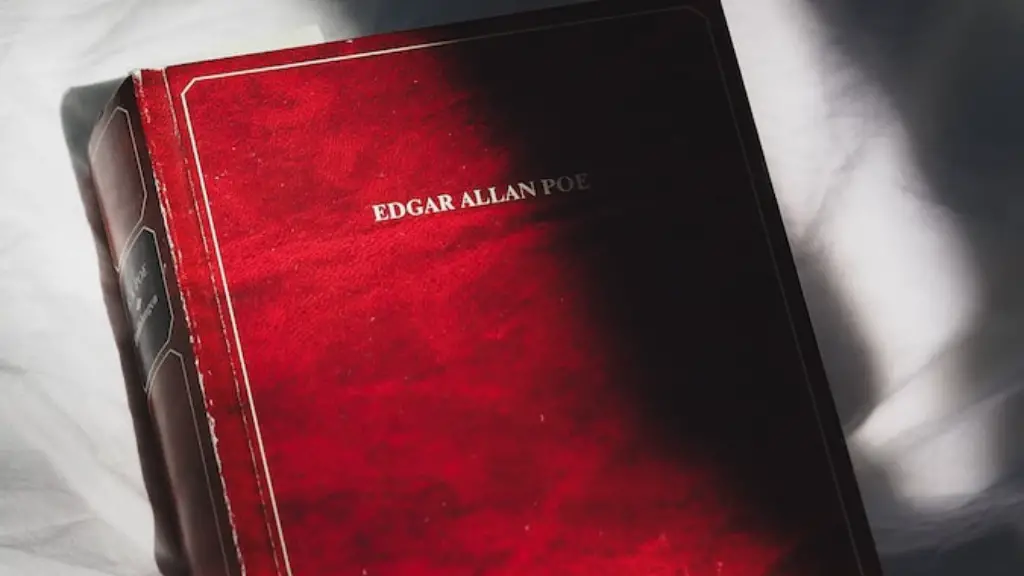Writing Spoken Poetry
Whether you’re an aspiring poet or an experienced wordsmith, spoken poetry can be an exhilarating way to express yourself. This type of poetry allows you to bring poetry to life in a very physical way. Crafting spoken poetry requires a different approach than writing a conventional poem. In this article, we’ll explore ways in which you can get started with spoken poetry and how to make it engaging to your audience.
The origin of spoken poetry can be traced back to ancient cultures where oral traditions relied on poems to pass down stories, messages and histories. As spoken poetry evolved, it took on a variety of forms including raps, orations, rhymes and performance pieces. Today, spoken poetry has become an expressive and deeply personal way to express feelings and ideas.
Preparing to Write Spoken Poetry
Before you start writing your spoken poem, it is important to think about the subject matter you wish to address. Consider stories that are close to your heart or an issue that you feel strongly about. Think about relevant topics such as family, culture, politics or social justice. Once you decide on a topic, you can then focus on crafting the content of your poem.
You should consider the audience who you are writing for and how you want them to feel when they hear your poem. Take some time to brainstorm ideas and think about what kind of words, language and storytelling techniques will make the poem relatable and emotionally resonant.
Writing and Rehearsing Your Poem
When it comes to the actual writing of your poem, you should use a combination of figurative language and powerful imagery to create a vivid, emotive painting of your story. Consider using metaphors and similes to give a multi-dimensional texture to your words.
You should also practice reading the poem out loud to yourself. Think about how you want it to sound, focusing on the speed and tone of your words. Make note of any syllables or words that may need to be emphasized or repeated. Practicing in this manner will help you become more familiar with the poem and make its delivery more natural when performing it in front of a live audience.
Getting Your Poem Ready for Performance
Before you perform your poem, make sure that it is properly prepared. Check the spelling and grammar and make sure that the poem flows smoothly from start to finish. Make sure that all of the words fit together in a meaningful and cohesive way.
You should also think about how you want the poem to be delivered. If you want it to be narrated, you should use your voice to bring the words to life. Or if you want it to be a rap song, you should focus on the beat and rhythmic elements of the poem.
Delivering Your Spoken Poem
When you are ready to perform your spoken poem, make sure you focus on delivering it with confidence. Speak loudly and clearly, allowing the words to resonate with the audience. Make sure that you use hand gestures and facial expressions to emphasize your words and make sure that you keep the flow of the poem going without getting flustered.
It is also important to project a level of emotion that connects you to the message of the poem. Remember to speak from the heart, and be sure to pause for effect occasionally throughout your performance. The entire experience is about engaging your audience and letting them connect to the story you are telling, so use your energy and enthusiasm to ensure that your spoken poem is powerful and memorable.
Memorizing Your Poem
Many spoken poetry performers choose to memorize their poems in order to deliver them with greater confidence. This can be easily achieved with some practice and repetition. Make sure that you break the poem down into smaller, manageable chunks and practice them until they become firmly ingrained in your mind. You can also practice reciting the poem with a friend or family member to help you to stay focused while memorizing it.
Beginning Spoken Poetry as a Career
If spoken poetry is something that interests you, you can pursue it as a career. You can start by performing at open-mic nights and poetry slams. Start by researching the spoken poetry scene in your local area and attend open-mic events to watch others perform and get an idea of how it works. You can also look for opportunities to collaborate with like-minded writers, poets and performers.
Networking with Spoken Poets
Networking is a great way to learn more about the spoken poetry scene. Social media is a great place to connect with other spoken poets and share ideas and experiences. Joining online communities such as Facebook groups, Twitter and Instagram can help you to meet other spoken poets and stay up to date on upcoming events and performances.
Publishing Your Work
Once you have a selection of spoken poetry pieces, you can start looking into publishing them. Consider submitting your work to literary magazines or submitting them to spoken poetry competitions. You can also post your work on your own website or social media platforms.
Organizing events
If you want to take a more active role in the spoken poetry scene, consider organizing an event. This could be anything from a small local open mic night to a larger event such as a poetry slam. You can reach out to other spoken poets to help co-ordinate the event and network with venues to find a suitable space.
Using Technology
Technology can also play a role in how you approach spoken poetry. You can use recording equipment or apps to record your performance and share it with a broader audience. You can also use apps such as Instagram, YouTube or TikTok to share short snippets of your work with a global audience.
Measuring Success
When it comes to assessing your success, focus on your own personal accomplishments. Give yourself credit for taking the initiative to perform and write spoken poetry. Having other people appreciate and be moved by your work is a great feeling but don’t forget to take a moment to appreciate your own efforts and hard work.



